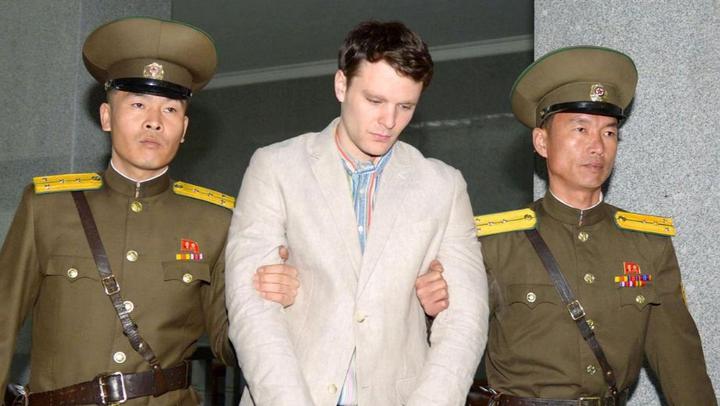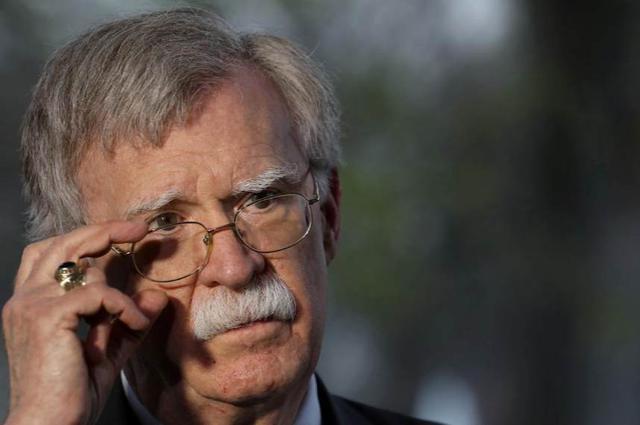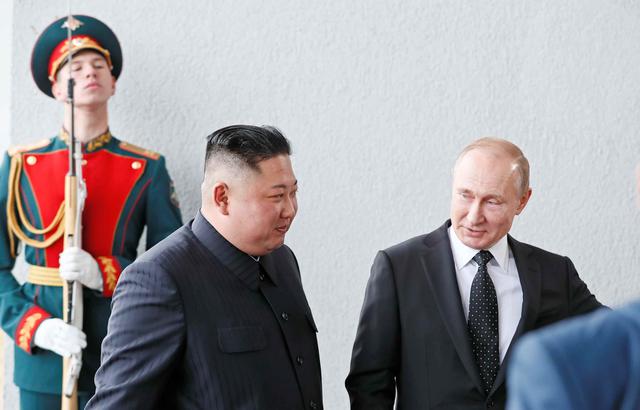
Bolton says U.S. signed DPRK document to pay for Warmbier's care
The United States signed a document agreeing to pay Pyongyang for the care of American Otto Warmbier but never paid the two million U.S. dollars Pyongyang demanded, White House national security adviser John Bolton said on Sunday.
Bolton, who said he was not part of the administration at the time, confirmed newspaper reports that the Democratic People's Republic of Korea (DPRK) demanded the money before Warmbier was flown out of Pyongyang in a coma on June 13, 2017.
Asked whether U.S. envoy Joseph Yun signed the document when he went to retrieve Warmbier, Bolton told "Fox News Sunday" in an interview: "That is what I am told, yes."
He said no payment was made. "It is very clear to me from my looking into it in the past few days that nobody was paid. That is clear," Bolton said.
Warmbier, a University of Virginia student visiting the DPRK, was imprisoned in January 2016. DPRK's state media said he was sentenced to 15 years hard labor for trying to steal an item bearing a propaganda slogan from his hotel.

U.S. National Security Adviser John Bolton speaks during an interview at the White House in Washington, U.S., March 29, 2019. /Reuters Photo
Bolton said Trump was ready to meet with DPRK's leader Kim Jong Un for a third summit to reach a deal for Pyongyang to give up its nuclear weapons.
The second summit in Vietnam collapsed without an agreement after Trump and Kim failed to agree on the extent of economic sanctions relief for the DPRK in exchange for giving up its nuclear program.
During the meeting, Trump demanded full denuclearization, including the transfer of Pyongyang's nuclear weapons and bomb fuel to the United States.
"He still looks for the possibility of a third summit with Kim. He feels pretty strongly about it," Bolton said, rejecting a return to six-party talks to persuade Pyongyang to shut its nuclear program.
The six-party talks, which included Russia, China, Japan and the Republic of Korea (ROK), as well as the United States and the DPRK, has been sidelined by the U.S.
"The six-party approach failed in the past. That doesn't mean we don't consult" with other countries, Bolton added. "Kim Jong Un has wanted the one-on-one contact with the United States, which is what he has gotten."
Kim met with Russian President Vladimir Putin for their first face-to-face talks on Thursday.

Russia's President Vladimir Putin walks with DPRK leader Kim Jong Un at the Far Eastern Federal University campus at Russky Island in the Far Eastern city of Vladivostok, Russia, April 25, 2019. /Reuters Photo
"I think both Russia and China could tighten up their enforcement of the sanctions," said Bolton, "I think they have been pretty good about it in recent months, but I think they could always tighten up."
After their first bilateral meeting in Russia's Far Eastern city of Vladivostok, Putin said Kim also wants denuclearization of the Korean Peninsula but his country needs security guarantees from the international community.
Those guarantees, if they are to work, would need to be offered within a multi-national framework, Putin said.
Kim told Putin that peace and security on the Korean Peninsula will entirely depend on Washington's future attitude, the KCNA reported.
Kim also blamed Washington's "unilateral" attitude for the breakdown of the Hanoi meeting and the current stalemate in denuclearization negotiations, it added.
(Cover: Otto Frederick Warmbier (C), a University of Virginia student who was detained in the Democratic People's Republic of Korea (DPRK), is taken to DPRK's top court in Pyongyang, DPRK, in this photo released by Kyodo on March 16, 2016. /Reuters Photo)
(CGTN)

